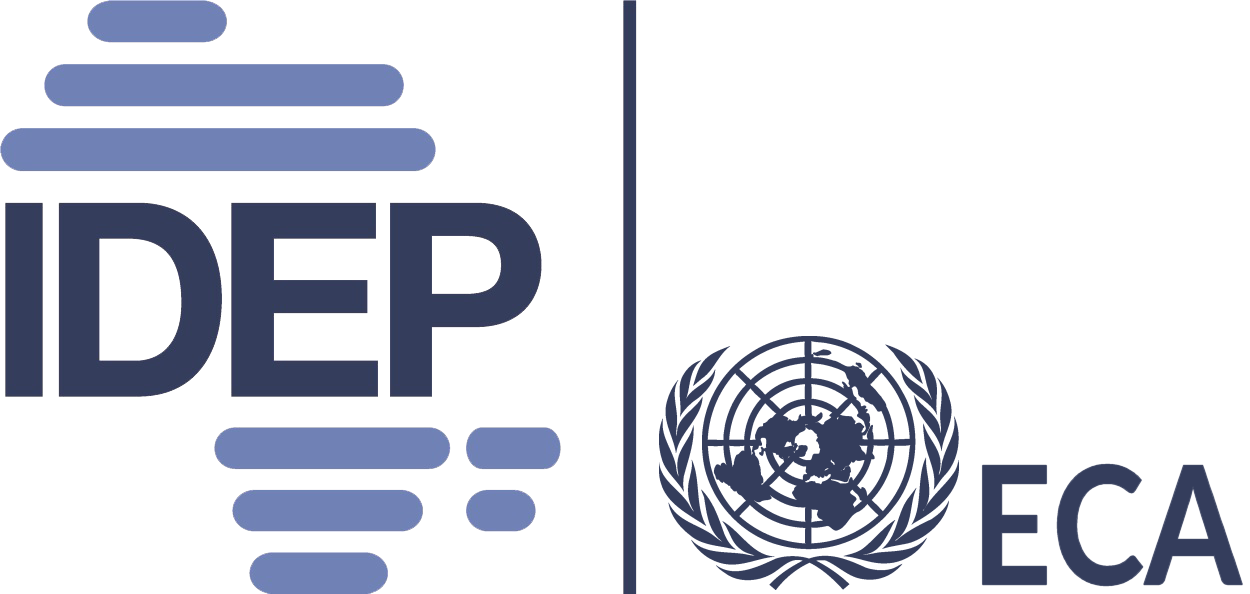
Dakar, 22nd March 2018 - IDEP hosted the Voluntary National Reviews (VNR) regional preparatory workshop to the 2018 high-level political forum (HLPF) which will be held in July in New York. The workshop gathered African countries to present their voluntary reviews on Sustainable Development Goals (SDGs). The workshop took place at IDEP on 22nd March 2018, following the global workshop which gathered all African and other continents’ VNR countries on 20th and 21st March in Dakar, organized in collaboration with the Department of Economic and Social Affairs (DESA) and the United Nations Economic commission for Africa (ECA). It is also within this framework that a meeting of Western and Central African stakeholders, mainly non-state actors, took place on 23rd March.
This series of meetings was held preceding the 2018 African regional forum on sustainable development scheduled from 2nd to 4th May in Dakar, Senegal which is being organised by the ECA as mandated by the Joint Annual Meetings of the African Union and the Economic Commission for Africa Conference of African Ministers of Finance, Planning and Economic Development. This regional fora allows for monitoring and review of implementation of Agenda 2030 in Africa in line with Agenda 2063 and provide inputs for annual sessions of the HLPF. The latter is an annual global gathering for monitoring and review of progress made in the implementation of SDGs during which political leadership, orientations and recommendations on sustainable development are provided.
According to Mr. Nassim Oulmane, Chief, Green Economy and Natural Resources Section at the ECA, which constitutes the secretariat of the ARFSD, it will be important, during the HLPF in New York, to stress the African perspectives that will come up from this workshop and next fora in May, in Dakar. He stated that the role of ECA, in conjunction with the African Union Commission, is to ensure that African countries use approaches allowing them to integrate agendas 2030 and 2063 in their national plans, in order to ensure the achievement of the respective goals and aspirations.
The Dakar preparatory meetings stressed the need to pay particular attention to the specificities of Africa, especially as a continent that has its own Agenda 2063, “the African we want”, which integrates a number of aspects specific to the African continent.
This meeting allowed also VNRs countries to pool their experiences, forces, ideas and initiatives for the successful implementation of the SDGs.
Benin, Cabo Verde, Congo, Egypt, Guinea, Mail Namibia, Niger, Senegal, and Togo participated in this important conversation. Their representatives discussed formats of VNRs presentations and proposed the basis for the process towards the HLPF, in conjunction with the UN Economic and Social Council (ECOSOC).
According to them, the interest of the review on the implementation of the agendas 2030 and 2063 lies in the opportunity for sharing experiences in terms of success, challenges, institutional and technical achievements; mutual reinforcement through exchanges; and ensuring appropriateness and adequacy of approaches being used.
For the representative of the government of Senegal, Mr. Mayacine Camara, Coordinator of the General Directory for Planning and Economic Policies, it is important to take that window of opportunity offered by the VNRs to better implement the “Plan Senegal emergent” which converges perfectly with agenda 2030.
From the exchanges, one of the main achievements is the ownership of development agendas 2030 and 2063 by African countries. Much has also been done to integrate and align national development plans to the objectives set by international and continental agendas.
Most of the countries engaged in the VNRs process have adopted the « leaving no one behind » principle as a cardinal virtue. The 23rd March session with non-state actors should allow for the capitalization of achievements and endorsement of best practices to assure inclusion.
A few challenges still prevail with regards to data collection; computing of indicators; reinforcing capacity in national statistics offices; institutional backing for the monitoring of SDGs and Agenda 2063 as well as the VNR process in general, synergies between departments involved, in particular; the funding, the knowledge and the utilization of integration tools, amongst others.
Ms. Karima Bounemra Ben Soltane, Director of IDEP, recalled that IDEP has always been a place of production of ideas, generation and delivery of knowledge on African development. She was particularly pleased to host an African meeting for sharing on the way forward in order to successfully conduct the voluntary national reviews whilst considering the complementarity of the agendas 2030 and 2063 and the convergence with national development plans of African countries. The conclusions of the meetings will allow IDEP to better serve the capacity needs of its Member States, mainly in terms of approaches to planning, monitoring and evaluation, statistics and analysis.
More information:
Ms. Mbathio Samb
Assistant research officer
Training and Research Division
African Institute for Economic Development and Planning – IDEP